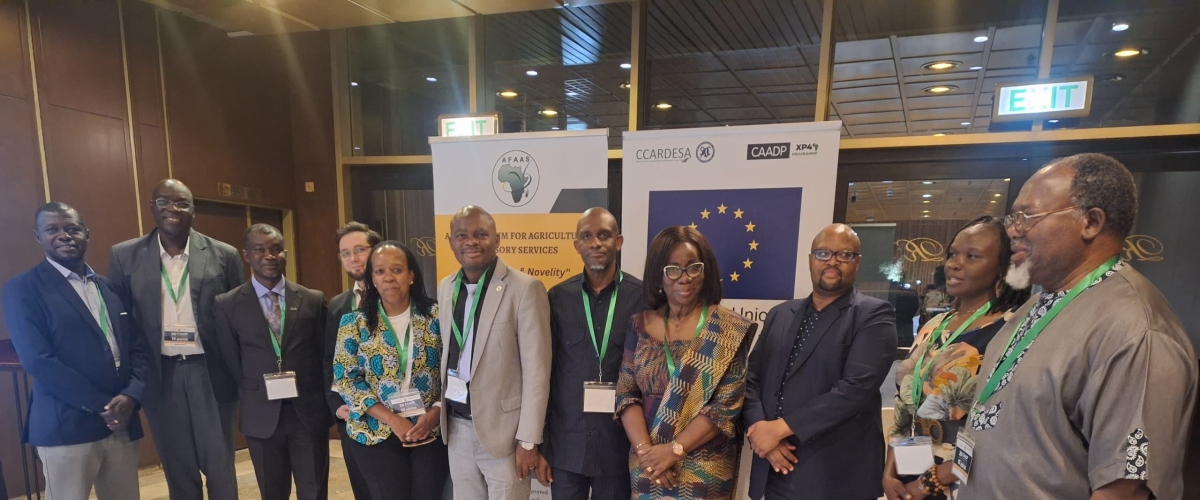
As Africa strives to meet the Sustainable Development Goals (SDGs) and fulfill the Malabo Commitments, it is evident that more work is required to advance agricultural transformation on the continent. To contribute towards this endeavor, the Comprehensive Africa Agriculture Development Programme EX Pillar 4 (CAADP-XP4) Project, which is financed by the European Union and managed by the International Fund for Agricultural Development (IFAD), was conceived in 2019 to drive science-led, climate-smart, and sustainable agricultural growth in African nations. This project was intended to benefit African National Agricultural Knowledge and Innovation Systems (NAKIS) in supporting smallholder farmers, women, youth, and marginalized communities.
During the 20th Comprehensive Africa Agriculture Development Programme Partnership Platform (CAADP-PP) and the Commemoration of the 15th Africa Day for Food and Nutrition Security (ADFNS) held in Harare, Zimbabwe from 29th October – 1st November 2024, AFAAS, on behalf of the African Agricultural Research, Innovation, and Education Institutions (AARIEIs) which includes AFAAS, FARA, RUFORUM, ASARECA, CORAF, and CCARDESA, organized a side event to put a spotlight on the significant role of African research and education institutions in driving agricultural productivity and creating opportunities for youth and women across the continent. The meeting convened around the theme “Two Decades of CAADP Agenda: Cultivating the Nexus of Nutrition, Agrifood Systems, and Education for Africa’s Growth” sought to bring experiences and lessons from different countries to celebrate achievements and learn from failures to inform the formulation and implementation of the post-Malabo agenda.
Dr. Paul Falakeza Fatch, Chair of the AFAAS Board of Directors, opened the side event with inspiring words: "Serious problems cannot be solved at the same level of mindset that created them," echoing Einstein’s wisdom on the need for new approaches. He further reiterated that insanity is doing the same thing repeatedly, expecting different results. Dr. Fatch emphasized three key areas for advancing African agriculture: potential, presence, and pragmatism. He noted that AARIEIs hold immense potential to uplift the sector, with proven models for youth and women empowerment and AFAAS’s country forums providing impactful, grassroots platforms for advancing technology dissemination and adoption. This is possible through leveraging the AARIEIS’s network of individuals and institutions. He highlighted the importance of strategic presence, stressing that AARIEIs must focus on mobilizing resources and positioning themselves to be present with actions where they are needed the most to truly make a positive difference. Lastly, he underscored the need for pragmatism in driving agricultural innovation, advocating for practical solutions using available resources such as increased solar use and investment in irrigation and agricultural trade facilities. He also called for a shift from outdated practices to sustainable alternatives that foster meaningful change.
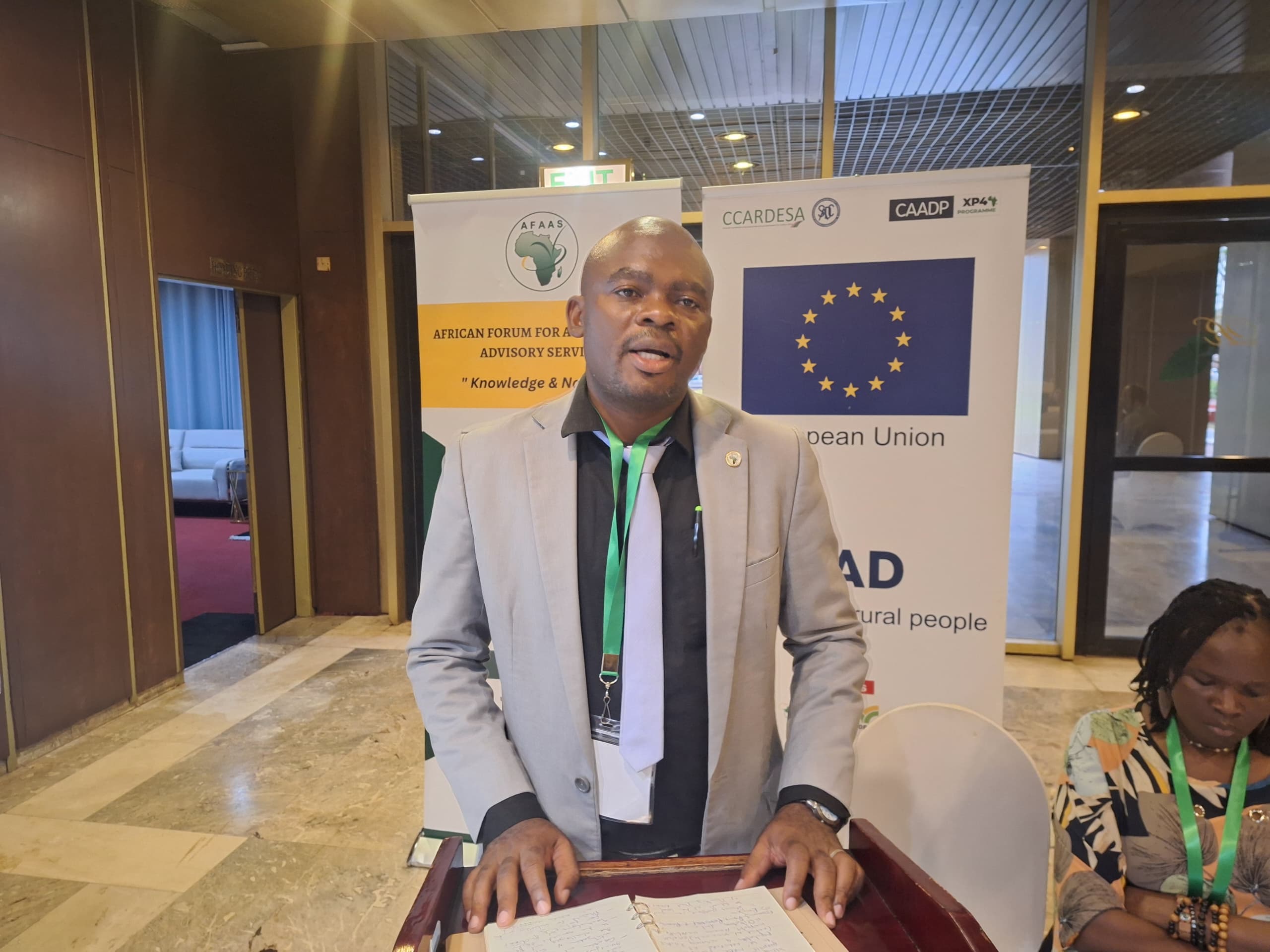
Dr. Aggrey Agumya, Executive Director of FARA, addressed the need for collaboration across African countries, citing fragmentation as a significant hurdle. "With over 50 countries, fragmentation has delayed progress, creating overlapping mandates and competing objectives," he remarked. "The CAADP-XP4 initiative aims to unite these efforts, leveraging the power of a common voice to reduce costs and achieve economies of scale." He highlighted FARA's mission under CAADP-XP4 as being to enhance agricultural research, extension services, and cooperative efforts through structured partnerships. He informed the meeting that this would be achieved through the current AARIEI partnership framework, which, through consultation, FARA is spearheading and seeking to establish a management and governance structure for the AARIEI collaboration.
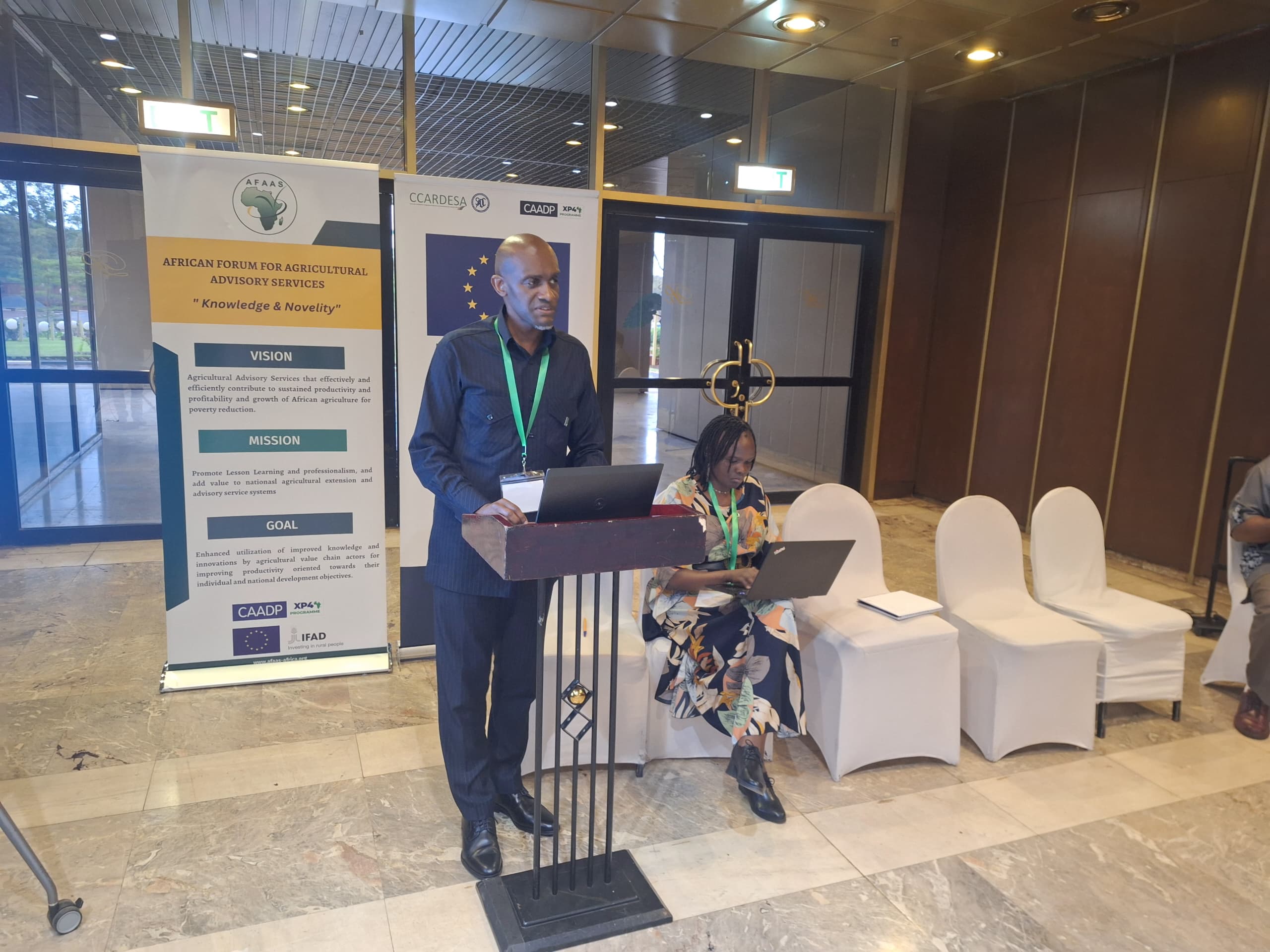
Prof. Cliff Dlamini, Executive Director of CCARDESA, noted the immense productivity potential within the SADC region, emphasizing the region’s untapped resources. "We have the land, the water, and the potential, but production remains low," he stated. Prof. Dlamini explained how CCARDESA promotes agricultural transformation by coordinating projects such as the Food Systems Resilience Programme (FSRP) and scaling initiatives across SADC’s 16 member states. "We must scale out to reach communities, scale up to influence policy, and scale deep to change behavioral and cultural perceptions around agriculture. Only then will we achieve the political support we need." As AARIEIs, our work is to identify the existing lock-ins that hinder transitioning and seek solutions to address them.

Dr. Emmanuel Njukwe, Director, Research and Innovation at CORAF, discussed their partnerships with CGIAR and the establishment of Centers of Excellence for crops like rice and other critical value chains. CORAF’s commitment to "scaling deep" has fostered resilience by strengthening local capacities through innovation platforms and climate change communities of practice. Dr. Njukwe also highlighted CORAF's support for women and youth through training programs funded by ECOWAS, thereby helping these groups gain skills that can transform local agriculture.
Mr. Moses Odeke, The Interim Head of Programs at ASARECA, spoke on the importance of an enabling policy environment to support agricultural scaling and address climate change’s impact. "Strategic partnerships and policy harmonization are crucial to achieving sustainable transformation in agriculture," he noted, emphasizing ASARECA’s work in knowledge management and partnerships with initiatives like the second edition of the African Development Bank-funded Technologies for African Agriculture Transformation (TAAT 2) to support regional agricultural growth.
Dr. Patrick Okori, Executive Secretary, RUFORUM, emphasized the importance of equipping youth with practical skills and entrepreneurial mindsets. "Our goal is to transform youth engagement in agriculture from passive to active through practical education and hands-on experience," he stated, sharing examples of students who established NGOs and agribusiness ventures after completing their training. RUFORUM’s youth-focused initiatives aim to reach 250,000 young Africans and promote community transformation by linking farmers with markets and technologies. He reiterated that to effectively engage the youth in gainful employment in the agricultural sector, there is a need to take an ecosystem approach that looks at all the actors in the agri-food system transformation and their contribution. This is particularly important when skilling youth to take advantage of the existing opportunities along the agricultural product value chains. The youth as they are trained, intentional efforts need to be put in place to afford them theoretical and practical skills. This will then mean rethinking how attachments and internships are planned and executed. The education systems need to work with industry players.
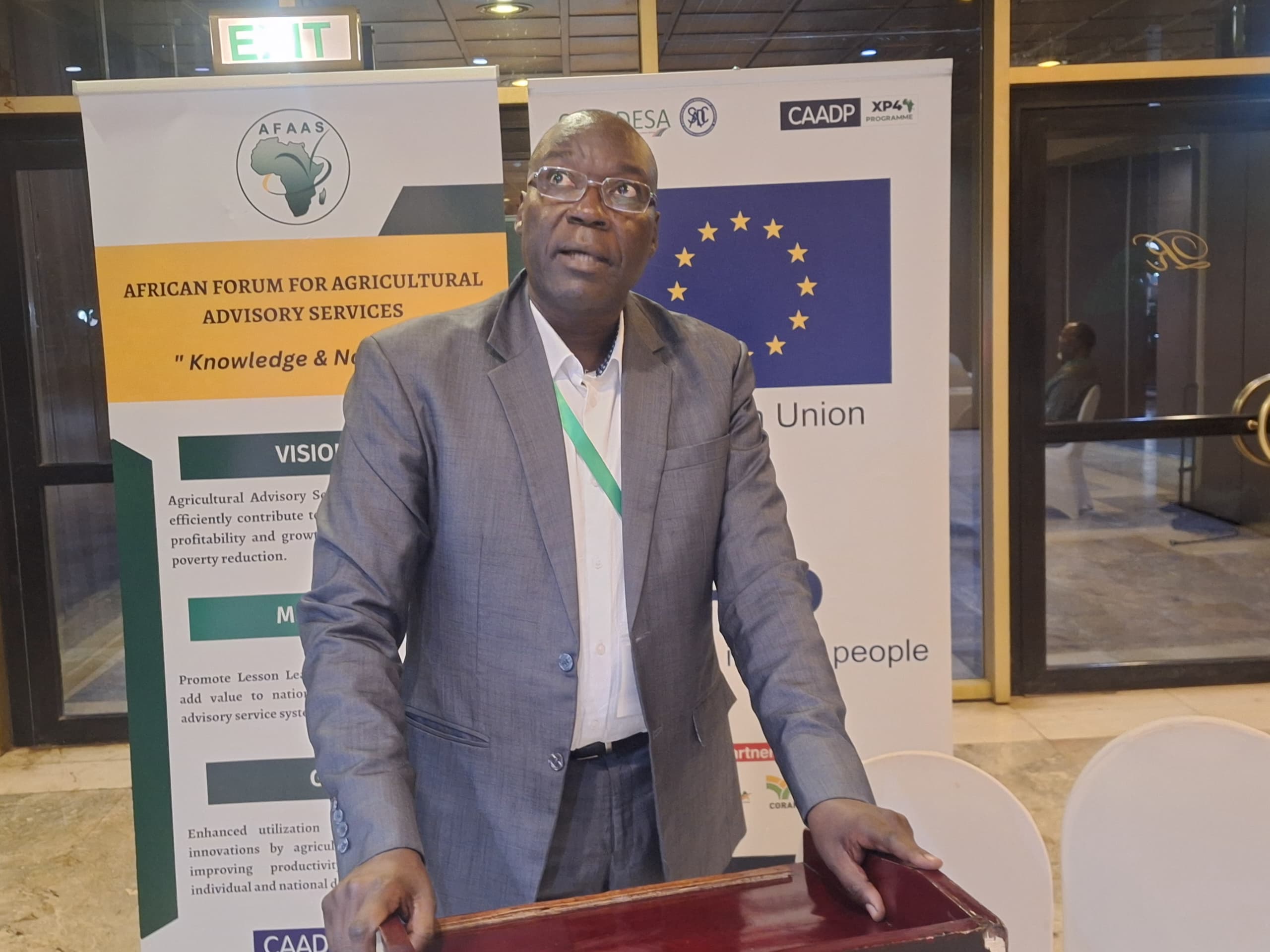
Mr. Jerry Egessa, Monitoring and Evaluation Expert, speaking on behalf of the Executive Director, shared how AFAAS Youth Engagement Initiatives have taken center stage. Highlighting efforts to bring youth into agriculture through digital and cooperative business models. "Governments may no longer invest in extension services, but we are working with the private sector and digital tools to fill this gap," Mr Egessa explained. The organization has launched a youth entrepreneurship program to create digital platforms that engage young people in agricultural markets.
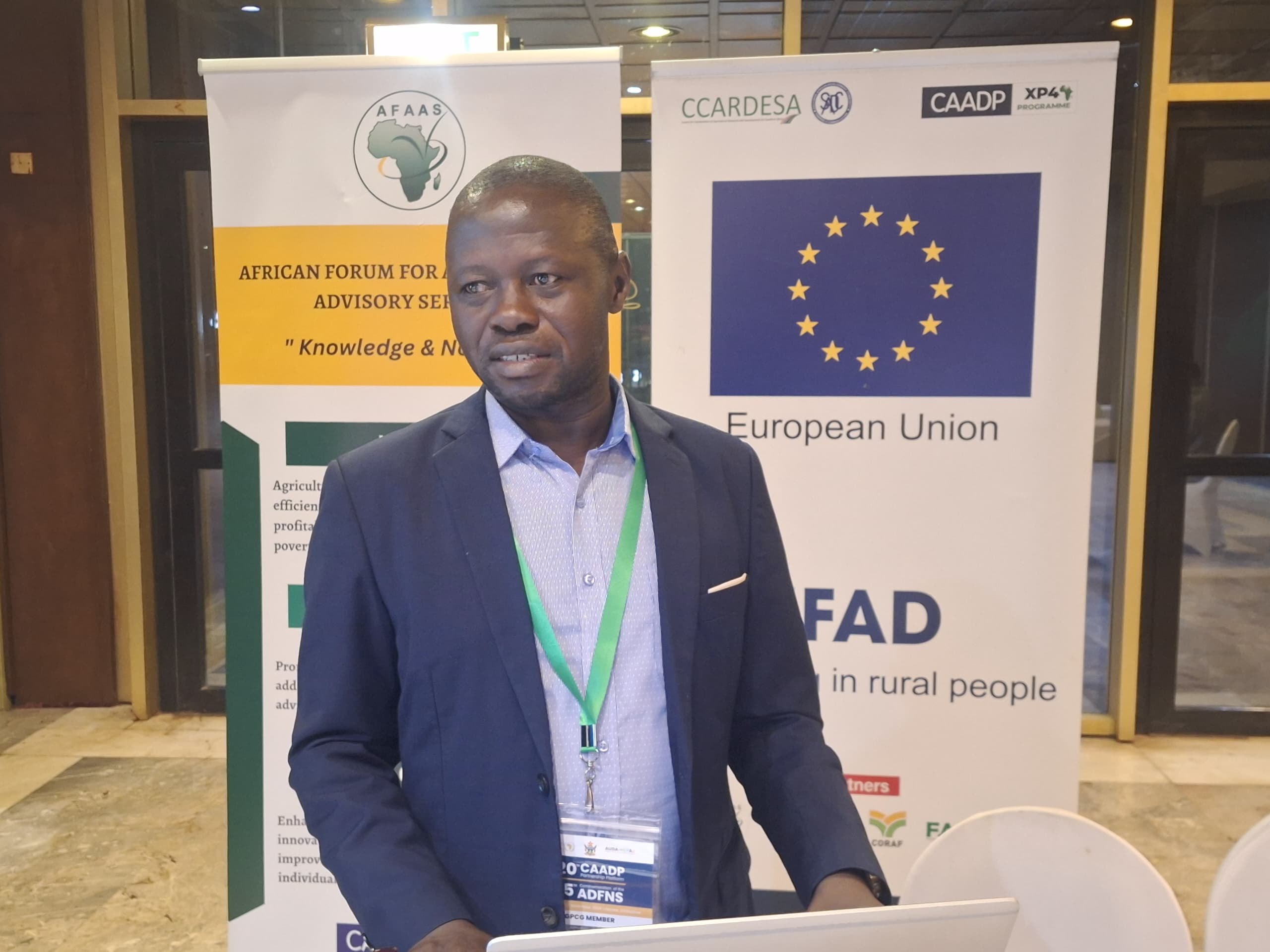
The AARIEIs side event demonstrated the critical role of African Agricultural Research, Innovation, and Education Institutions in advancing the continent’s agricultural agenda. Through collaboration and alignment with the CAADP / Malabo Commitments, these institutions address food security and drive sustainable and inclusive growth by engaging youth, women, and marginalized communities.
As Dr. Agumya summarized, "The future of Africa’s agriculture lies in our ability to work together, to learn from each other, and to inspire the next generation to lead the way." The event closed with a call to action for continued partnership and innovation to shape Africa's resilient and prosperous agricultural landscape.
The hybrid side event attracted academia, NGOs, researchers, the private sector, and youths.





